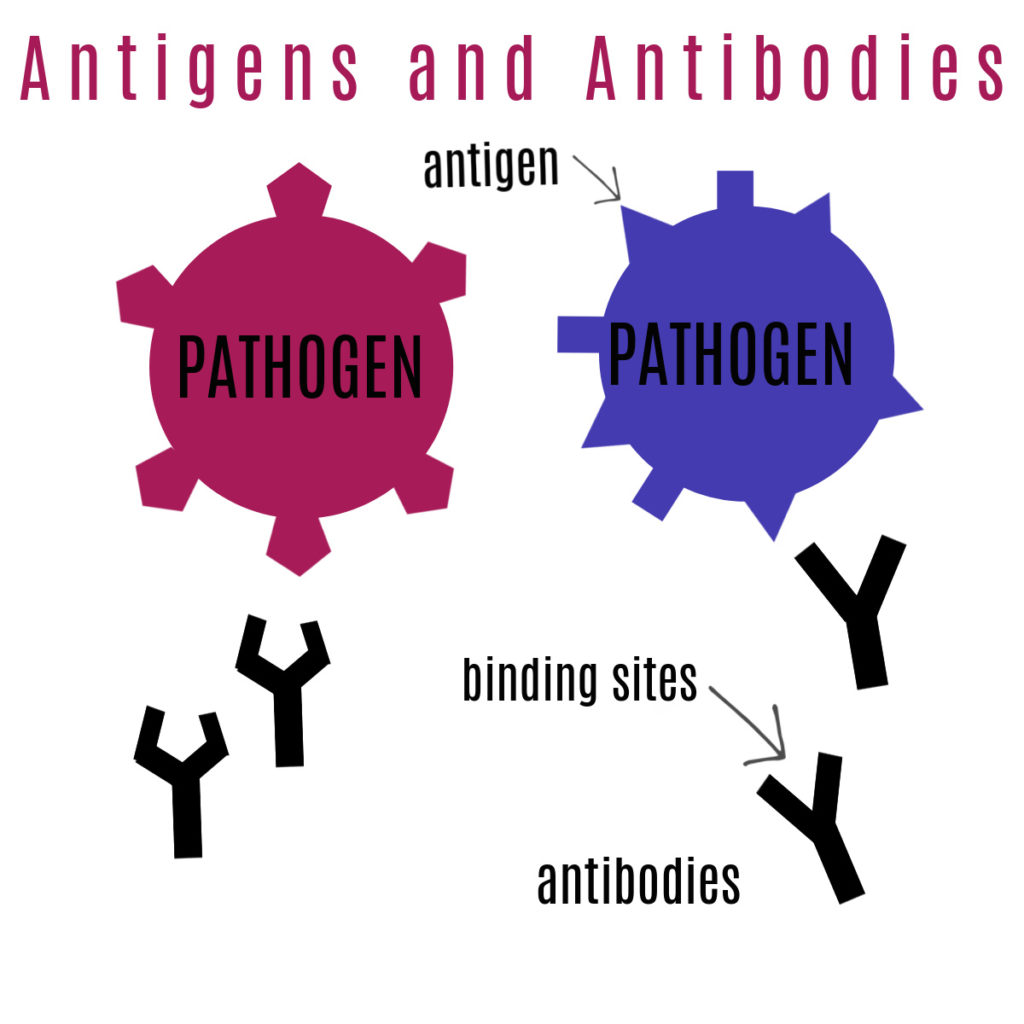If you’re immune to a particular virus or bacteria it means you already have the right antibodies in your blood ready to fight the pathogen when it enters your body.
What is Natural Immunity?
There are two ways a person can be naturally immune to a pathogen.
- When antibodies are passed from a mother to her child via the placenta or breast milk. This helps a new baby fight infections while their own immune system matures. This is known as natural passive immunity.
- Antibodies are made by a person when their body is infected by microbes. This means that if a person becomes infected with the same pathogen for a second time they are immune to it. A good example of this is chicken pox. People usually catch this as a child ( unless they are vaccinated ) and are then are immune as an adult.
What is Artificial Immunity?
- Vaccines provide artificial immunity. Active artificial immunity is when a vaccine containing either a dead or modified pathogen ( to make it harmless ) is injected into someone which stimulates the body into making antibodies and memory cells specific to that pathogen ready for if a real infection occurs )
- Passive artificial immunity is when a serum containing antibodies is injected directly into a person to help them fight infection.
The diagram below shows very simply how antibodies are specific to certain antigens on a pathogen.
If a person is immune ( already has antibodies ) to a pathogen they can mount a specific immune response quickly, destroying the pathogen before it makes them ill.

Last Updated on January 29, 2021 by Emma Vanstone

Leave a Reply